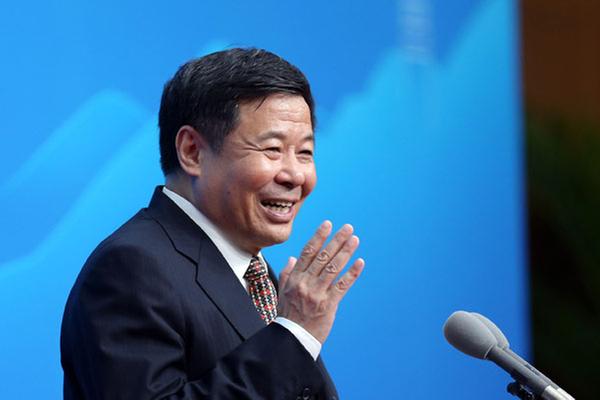Minister 'fully confident' about financial reforms

 |
| Vice Finance Minister Zhu Guangyao. [Photo provided to China Daily] |
China is committed to controlling domestic debt levels and strengthening financial governance, Vice Finance Minister Zhu Guangyao said on Thursday before the Group of G20 summit in Hamburg.
"We are strengthening financial governance," Zhu said. "We are fully confident that no regional or systemic risks will result. China's financial system is committed to continued reform, to provide support to the real economy and sustainable economic growth."
It was important to use fiscal and monetary policies, as well as structural reform, to achieve the healthy and sustainable development of the global economy, he said, adding that China hopes the G20 summit can reach consensus on free trade and climate change.
Sluggish global growth and anti-globalization threats have made the meeting particularly significant as a platform to inject new growth momentum into the global economy.
Ahead of the gathering, a G20 finance working group highlighted the importance of building financial resilience, enhancing investment and regulating the digital economy.
In May, the United States rating agency Moody's downgraded China's sovereign rating to A1 from Aa3. It did, however, change its outlook to "stable" from "negative", citing China's resilience to external conditions and expressing hope for financial reform.
Zhu said the rating cut did not reflect the Chinese economy's optimistic outlook and the trend for continued growth. He said China recognizes the importance of controlling debt levels, and was focusing on reform measures.
"We acknowledge the challenges in China's corporate loan sector, but, objectively speaking, China's capital market is still immature and the corporate sector still has high reliance on the banking sector,'' Zhu said.
He said China was implementing a collection of systemic reform measures, including opening up its fixed income market to foreign investors.
This week, China started the so-called Bond Connect trading link which gives offshore investors access to the world's third-largest debt market. Under the scheme, foreign fund managers can trade in China's $9 trillion government, agency, and corporate debt markets without having to set up onshore accounts.
Zhu said that the Frankfurt-based European Central Bank's decision, in January, to invest 500 million euros ($568 million) of reserves into renminbi-denominated assets, was a boost in confidence for China's economic growth.
"As China and Europe's confidence in each other grows, our mutual holding of each other's assets will also further increase," he said.
China's overall direct government debt ratio is currently 36 percent, according to government figures.
On climate change, Zhu said China and all G20 members "should honor our commitments and take concrete actions''.
"Our goal remains the same, that is to enhance the solidarity among us and make joint contribution for a better home for us," he said. "We hope we can reach consensus at this year's summit, and this consensus should be made by all members, every one of them."
Contact the writer at [email protected]
- From Hangzhou to Hamburg, G20 sees rising difficulties in pushing forward global agenda
- G20 needs to build digital economy friendly to growth, jobs: Xi
- China calls for more G20 efforts on African development, digital economy
- G20 needs to adopt a vision for future
- Xi returns after Russia, Germany visits, G20 summit

































